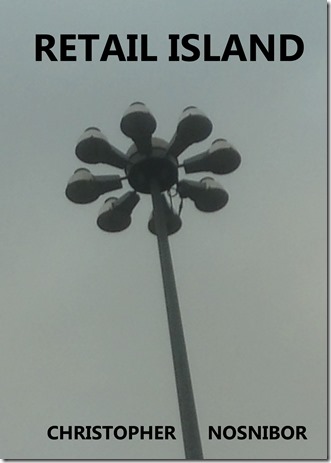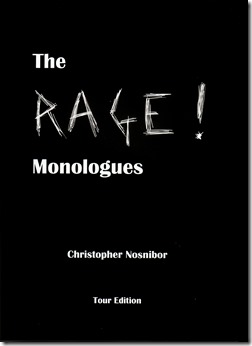I’m at a stage where promoting my writing feels beyond me, and I certainly don’t expect there to be a plethora of reviews and interview requests surrounding the publication of my new book, my first proper work of fiction and first output of any sustained length in a full five years. This explanation, apology, dissective reflection, whatever it may be, is likely to be as close to getting under the skin of a book that developed in two distinct but equally difficult phases as will happen.
Not so long ago in real terms – two years ago, maybe – I was working on three projects simultaneously: a concise but monograph-length academic work on postmodernism, a long, long exploratory novel, and a story that was partly inspired by JG Ballard’s later works, but primarily by the bleak landscape surrounding the office space my job had recently located to. Within a few months of the relocation, the inspiration for the latter work proved to the cause for all three projects to ultimately halt.
The venue depicted in Retail Island as The Orchard Carvery was the place where a number of sections, particularly in the early stages, were written, and the mind-numbing dialogue I found myself transcribing in the name of making art that was credible and close to life proved to be a major contributor to my creativity – such as it was – drying up. Having transferred from a town-centre office close to my home, to an out-of-town office in a location almost identical to that in which the book is set, a full hour’s journey away, I found my mornings starting earlier and my evenings starting later, but, worst of all, whereas I had once had access to pubs and coffee shops where I could write, there was only the carvery as an option for lunchtime writing. Increasingly, I found myself either walking to Asda or WHS Smith or Sainsbury’s for something to do over the course of a 20-minute lunch break, or otherwise failing to leave my desk or taking any kind of break at all.

At what point does enlisting a friend to help cross the boundary into an abuse of power? This was a question I began asking myself after I received a promotion. Finding myself managing a team, I charged one of my staff with the task of making sure I took a lunch break. Was it wrong? This question would ultimately resurface in the writing, which, in hindsight, only became possible once enforced lunch breaks came into effect. I’m aware that assigning ‘tasks’ is in a different league from parading one’s cock, but in a climate whereby I’ve been subjected to the opinion that performing a piece about suicidal self-loathing without a trigger warning is more or less the same as committing rape, I’ve found myself questioning even my most basic assumptions. Given the graphic nature of some scenes – and again, given events over the course of the last few months – I even began to doubt whether it was right to publish. But the function of art is to challenge. Art that does not challenge is merely entertainment. As such, I make no apologies.
Retail Island is in no way autobiographical. I cannot stress this enough. As with many of my works, it’s an exercise, and an idea taken to its (il)logical conclusion. A serious, Ballard-influenced dystopia set in a parallel present on the one hand, it’s also rich in irony and parody, and is not a work designed to be taken as seriously as its surface suggests. The ‘love interest’ strand is simply my exploiting convention, and the apparent lack of irony in its execution is, in fact, a double irony.

Initially, my new job made writing impossible. I was exhausted, anxietised, immersed in the job. The new role brought with it a lot more stress and anxiety for minimal financial reward. With lunch breaks resumed, I ultimately returned to writing, both lunchtimes and evenings, and the project which had stalled at around the 3,600 word-mark began to flow, and I chiselled out the remaining 27,000 words in under three months. During this time, I found myself again, at least to an extent. I stepped back from the precipice of being a corporate machine, and reclaimed my mantle of being a writing machine. But the elation of production was tinged with the guilt of advantage.
On resuming writing, I remembered that I tend to work best when I have an audience, someone – or some people – I can sling chunks of text to by email, as they emerge. It’s less about feedback (and certainly not about validation) than about targets in some vague way. Most of the books I’ve written have been produced to tight, self-imposed, constraints. THE PLAGIARIST had to contain 200 pages of text and be completed inside three months. Because. A number of other works evolved because I promised – half-joking – to send various people either a page of text or 500 words a day. Perhaps it ties in with my other jobs, as a corporate whore and a music reviewer: give me a deadline and I’ll work to it. And I’ll deliver. So, on finding a willing recipient for regular instalments of my work-in-progress, Retail Island grew quickly. I spent less time thinking, and more time writing. And more time writing meant less time focusing on the causes and symptoms of my stress and anxiety – something else which fed into the book as the protagonist finds himself increasingly tormented by anxiety.

This again is something that’s played into my daily life. I’ve suffered from stress and anxiety. I still do. It’s become apparent that a number of people I now manage do, too. I’m increasingly aware of everyday mental health issues, and I’m also one of the worst at dealing with my own. But, moving on…
Retail Island is in no way autobiographical, but the characters and locations are real. Or versions of people and places which are real. I find it easier to write people and places I can visualise.
A large portion of my posts on various websites, including my own, as well as on social media and the sites of lit zines who interviewed or published me in the past have disappeared without trace over the last decade, but those that remain will likely attest that I’ve long advocated the practise of ‘write what you know’. This isn’t a stance against imagination: it’s just that personally, I find it easier to acquire details of a dismal office location while working in a dismal office, and to decorate a low-budget, lowest-common-denominator carvery with detail while frequenting a low-budget, lowest-common-denominator carvery.
For me, life will inevitably inform my art, and it was ever thus. So, for better or worse, a number of characters – a couple in particular – resemble people I know or otherwise work alongside. Their physical characteristics and various quirks, not to mention other details only they will recognise, have been woven into the fabric of their fictional counterparts. This is something I have done throughout my writing career, and no, the subjects aren’t always aware, often for reasons apparent. But Retail Island is a sci-fi novel, at least in the Ballardian sense. As such, the characters are largely ciphers and cardboard cut-outs: they are vehicles and tropes, and not designed to carry emotional resonance. As such, even those based on people I know and like are subject to a distancing, a detachment. These are not the people I know: these are characters, and delineated, two-dimensional ones at that.
To return to the question of power and its abuse: this has long been a topic of interest: having never had any tangible power previously, I’ve always been at the receiving end of any abuse – not ‘bad’ abuse, but the kind of abuse which keeps a person down. I now have a small degree of power. I’m mindful not to abuse it, but there’s always a risk – especially in the current climate – that an off-the-cuff comment could lead to trouble. What do you do?
For the record, I do not work at a pharmaceutical company. But I do work in an office, and like any office, it’s riven with sexual tension. This, paired with the power debate, prompted one of the narrative threads before the whole Harvey Weinstein thing broke. I don’t know if it now looks like I’m trying to cash in on the zeitgeist here, or simply being exploitative. But some of the interactions I have witnessed – none nearly as extreme as the majority of scenes depicted in Retail Island – have made me scrutinise what goes on in workplace environments, and what people accept despite feeling uncomfortable.

I have a broad guideline for writing: observe everything, then leave 85% out. I adhered to this while composing Retail Island. The omissions provided space for the fiction. And beneath a more serious, genre-sculpted work than my previous efforts, all of the elements which featured previously are still present, just in a different form.
The use of repetition is much more subtle than in several of my previous works: instead of replicating phrases and scenes wholesale, a la Stewart Home (in turn appropriating Richard Allen) the repetitions are more narrative-based, with scenes and ideas seemingly looping, with a view to creating a sense of temporal dislocation. Think Alain Robbe-Grillet, perhaps. In keeping with the way the central character, Robert Ashton, feels he is constantly stonewalled and making no progress, so the narrative continually returns the reader to appoint of stasis and frustration.
As with all of my works, despite possessing a linear narrative and adhering broadly to many literary conventions, genre trappings and all (I’ve completely avoided any form of cut-up here), the ultimate aim of Retail Island is frustration (to a greater or lesser extent). But hopefully, the brutal violence, gratuitously detailed sex scenes (which are actually integral to the plot as it happens), and explosions will provide enough entertainment to counter the frustration.
Retail Island is published by Clinicality Press on 1 January 2018. It’s available to order now via THIS LINK.










